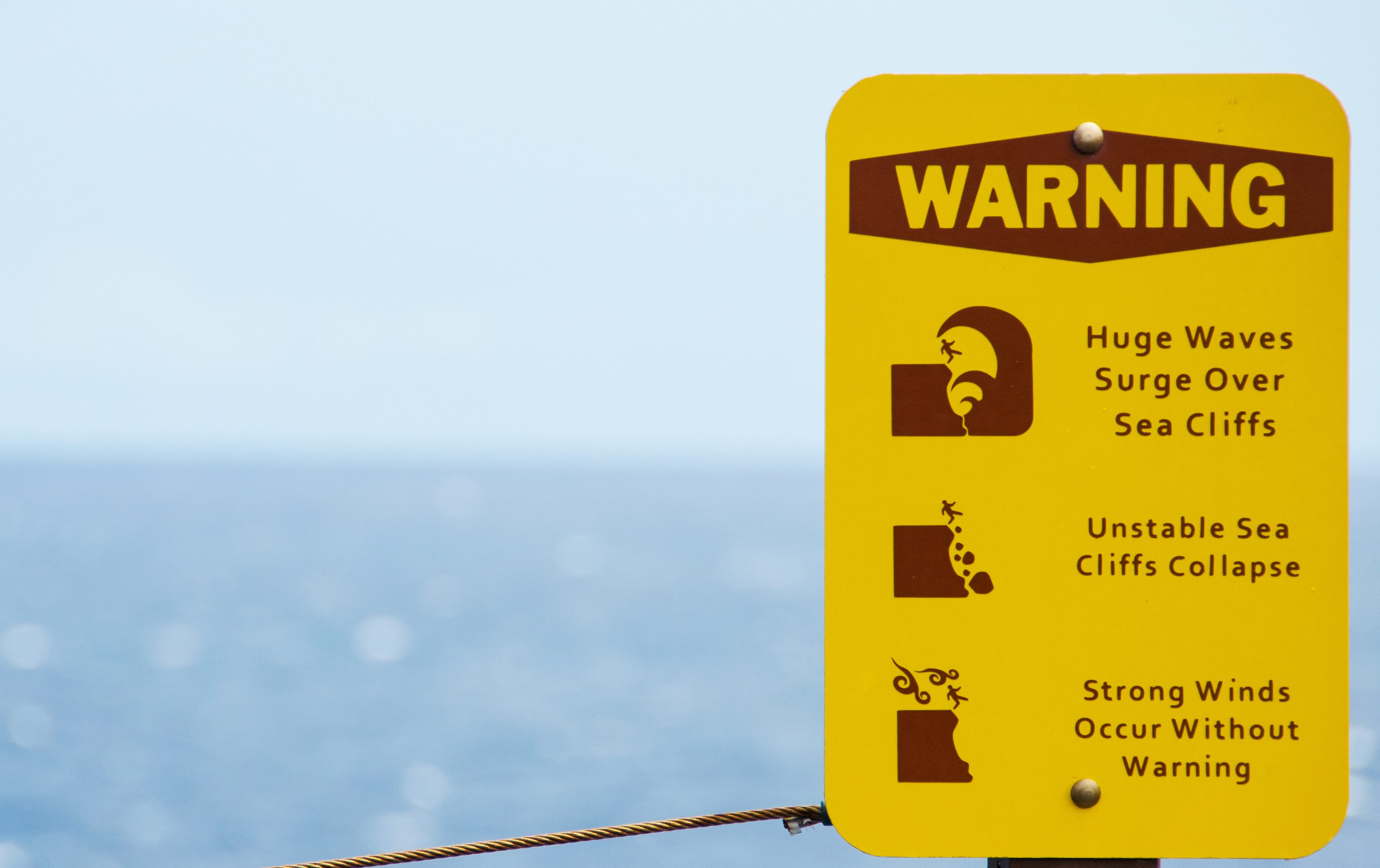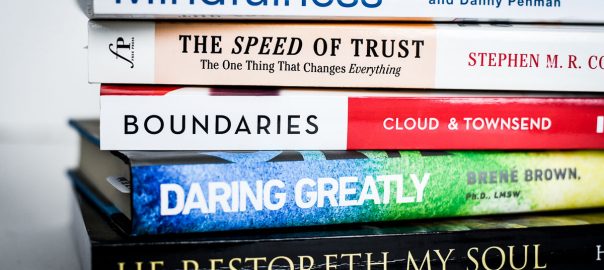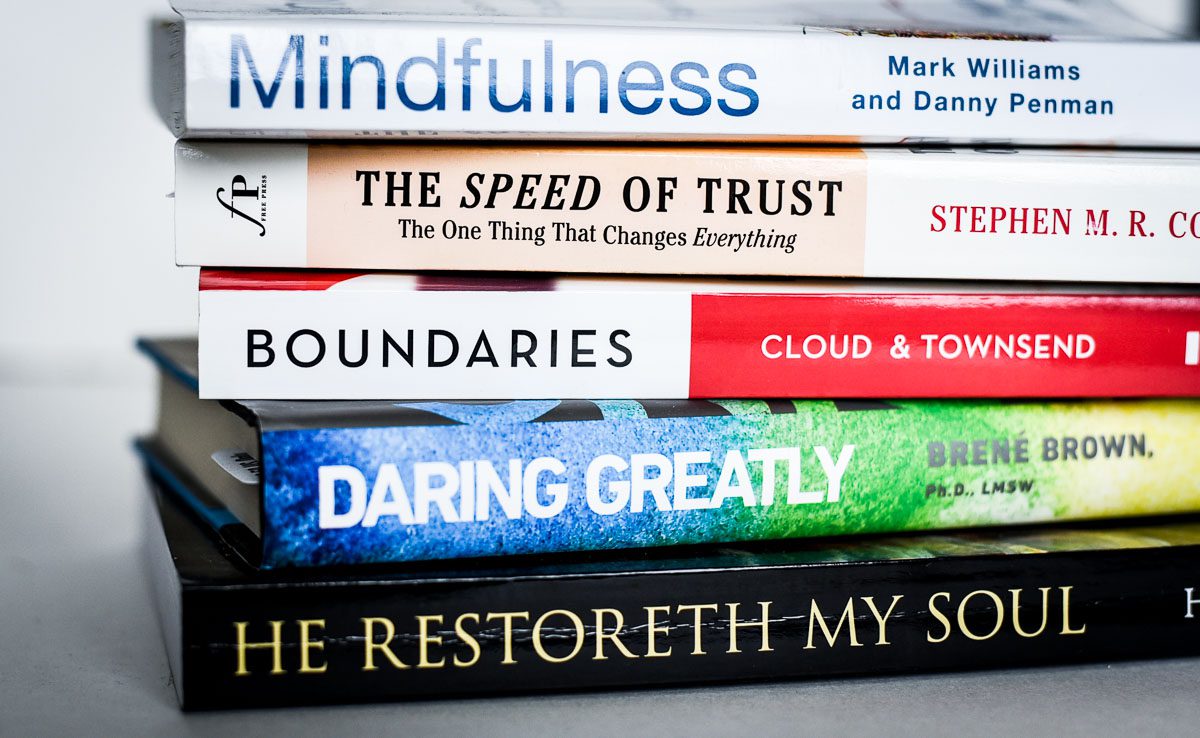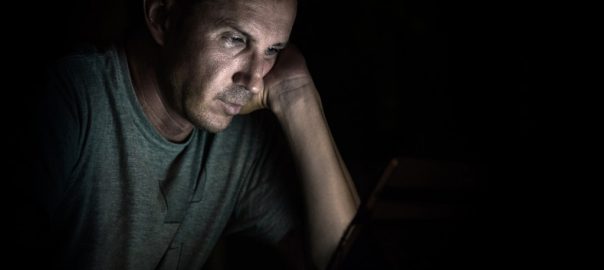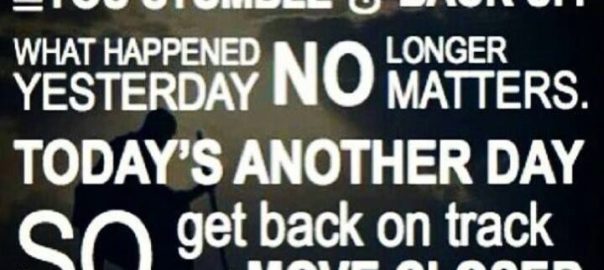
Recovery is Possible: My Journey Back from Addiction
The following is written by the husband of the author of ‘Why I Happily Agreed to Marry an Addict.’ It details part of the process of his recovery as well as how his dating relationship affected/was affected by that process.
This is the eighth in a series of posts addressing education on and recovery from pornography addiction and betrayal trauma. Please send questions that you have to [email protected]. To see the previous post in the series, click here.
As I pulled the magazine out from under my shirt, I closed my eyes. I was now disgusted by what I had in my hand and didn’t want to see it ever again. It was a struggle to light the thing on fire with my eyes closed, and I had to peak just a little to get it lit, and then again a few more times to make sure it burned completely. Each time I peaked I snapped my eyes shut as soon as I could and tried to erase the images that had snuck in from the exposed and flaming pages. When it was done I buried the ashes vowing that I would never look at anything so evil again. But I did. I had been hooked by that one piece of garbage I found by accident.
I used porn only occasionally through my teens, but it was in my early 20s that the addiction really set in. It affected all aspects of my life. I had a hard time studying for school, not only because porn addiction fogs your mind, but also because the prime environment for study—a quiet environment in which you are unlikely to be disturbed and have access to the internet—is also the prime environment for looking at porn. I avoided relationships because I didn’t want to be the cause of pain for another person. I struggled with financial discipline, sometimes incurring huge data charges on my phone. I was in deep trouble; I knew it, and it scared me.
Over the years I sought help from many different sources. I consulted a few different ecclesiastical leaders, and though they were encouraging and kind, most of them had little to no understanding of addiction or how to truly help someone struggling with porn. I wanted desperately to be rid of this problem, and so I gathered resources wherever I could. I came across many tools; some helped a lot, some didn’t help at all. I never did find a simple solution, though many things suggested they would be such, but I did find incremental success as I progressed in my understanding and developed more and more tools I could use. In the paragraphs below I share some of the things that helped me the most.
I tried attending a 12-step program where most of the attendants were struggling with porn. I listened and I shared when I thought it could be productive, but I felt little to no attachment to the people around me, and was often terrified that my story might turn into their story. Most of them were deeper in their addictions than I was. Many of them were married men who were there because their marriage was in danger as a direct result of their porn use. Sometimes I left there more stressed about my situation than when I had gone in, but some of the tools they used and shared were helpful to me.
Keep a Recovery Journal
I appreciated the counsel they gave on journaling regularly, particularly expressing gratitude for the good things in life. It can be easy to get caught in a trap of focusing only on what you need to change: the addiction. Focusing on only that becomes depressing. Writing in your recovery journal daily, particularly about things you are grateful for, can help with that. Otherwise, this journal can be used to keep track of dates and progress and record private thoughts about your recovery.
Trigger Analysis
Another tool they mentioned was trigger analysis. This is a common tool in addiction recovery, and can be very helpful in preventing further problems. On a basic level it is a post mortem after a relapse event. It consists of thinking back and examining the situation you were in just before your relapse. You ask things like: What was my emotional state? Was I bored? Stressed? Frustrated? Lonely? What was it that triggered me? Did I walk past the magazine section of the store and see something? Something that came up on my Facebook news feed? Did I drive by an adult establishment of some kind? Was it the way someone was dressed? Was it a thought that I had?”
You then follow up with the question: How can I change my behavior so that I will not be triggered by that again? Do I need to: Never walk through the magazine section again? Unfollow that friend that posts questionable things? Change the route I drive to or from work? When I interact with a woman, make sure I look at ONLY her eyes? Never have any thoughts again?
As you can see from the last bit, the usefulness of this tool is limited, but it is a worthwhile exercise, particularly when you keep a record in your recovery journal so you can keep track of what triggers you most often and learn to avoid it.
I eventually felt that I had gotten all I could from the 12-step meetings and when school and work schedules interfered with my attendance I stopped going. I later learned about other critical components of addiction recovery that I was not getting from 12-step meetings.
Professional Counseling/Coaching
I tried professional counseling as well. I ended up seeing three different counselors, two of whom specialized in cognitive behavioral therapy. They were each helpful in their own way, and each approached the issue differently. I think that hiring a recovery coach or professional counselor can be a great step for those that are serious about their recovery.
Try a few different counselors and find one you like. Doing so will require a high level of self-awareness. A good coach or counselor may be hard on you and push you to accomplish your goals or complete assignments such as meditation or deep and focused trigger analysis. It can be tempting to stay with a coach that takes it easy on you. Make sure that you stick with someone who addresses your specific needs, not someone who is simply easy to talk to.
Other Useful Resources
Some of the most useful knowledge I came across can be found at the website “Feed the Right Wolf.” On the homepage, there is a free recovery course that goes over some basics and details a process called ERP which stands for Exposure Response Prevention. I found it to be a very powerful tool when used consistently. It became a practice I still use sometimes today when I get triggered by an occasional passing billboard. A full explanation is well beyond the scope of this article, but I will say that it is a tool to help you maintain self-control at the critical moment of decision after you’ve been triggered.
When a porn addict is triggered there is a very, very strong physiological response: hormones are released, respiration increases, blood pressure rises—the brain becomes focused on one thing. ERP can be an effective means of reversing these effects, restoring calm to the body so you can make a wise choice based on your values and what makes sense, rather than an impulsive and stupid choice based on the incredible force of what your body is telling you to do.
A tool I found to be indispensable in my recovery is a phone app called Brainbuddy. It is designed to be a daily tool that helps you track your progress, gives you daily motivation and encouragement, increases your understanding of porn addiction and the recovery process, and generally helps you keep on top of things.
My Addiction and My Relationship
I was searching for anything I could that would help me break free from my addiction, but was still struggling pretty badly when I met the girl I would later marry. We met while I was on vacation, exchanged phone numbers, and stayed in touch over the next few months. We became good friends quickly and soon she mentioned she would like to fly out to visit me. I was both happy and heartsick at this offer. I wanted to see her, but was unwilling to have her make that kind of investment without a complete understanding of what she was getting into. After a brief deliberation, a few deep breaths to steady my nerves, and a moment to gather my thoughts, I began: “I would love for you to come visit, but there is something you need to know . . . ”
I did not give the messy details, but made it clear that I was dealing with porn addiction, that it was very difficult for me, that it had been difficult for a long time, and that I did not know how long it would take me to recover. I was very honest; I did not sugar coat anything. It was terribly hard for me. I had to first be honest with myself, not overly optimistic like I sometimes tried to be, but real, and truthful about the situation.
I wanted to make sure she clearly understood what she would be signing up for if she did indeed decide to invest in a relationship with me. It was important to me that she know from the beginning and make the decision for herself, rather than be blindsided by my addiction later on. She took some time to consider the situation prayerfully. Eventually, she decided she was willing to come for a visit, in spite of my addiction, and see what would come of it. That decision has blessed my life immensely.
When she came, we quickly decided we would be dating. I was apprehensive remembering the men from my 12-step class, but she knew about what I was struggling with, and we were dating, not getting married. Also, she was a lot of fun. It was a joy to be around her. We enjoyed getting to know each other, flirting, finding out more and more about each other. The more I learned, the more I liked her.
At first we didn’t talk at all about my addiction. I continued to struggle in private, sometimes doing well, and sometimes not doing well. When I was with her there was so much light and happiness in my life that there was no room for addiction. I virtually never thought about my addiction and was never tempted to do things that would trigger me.
When we were not together, though, it was another matter. Due to our long distance relationship we could not be together as often as we would’ve liked, but would keep in touch by phone. Every time I had a relapse, it was difficult. I wanted to wait for a good time to talk about it, but there is never a good time to talk about an addiction relapse. She wanted to know how I was doing, but it is terribly awkward to ask. We found a solution that proved invaluable to us. Each week I would send her a screenshot of my recovery progress from the tracking screen of my Brainbuddy app. It worked well for us because she didn’t have to wonder, and I didn’t have to find a good time to talk about it. We had a built in system.
After we had dated for a while, we started to get more serious about our relationship. I decided that I should be honest about everything I had been through, so that there would be no possibility that she could be surprised by anything down the road. It was a very difficult conversation. I told her my past misdeeds in the most matter of fact way possible, trying not to let emotions come to the surface. When I finished she said she needed to process this for a while, and walked away. She cried in her room for some time before we talked again. During this time I felt like I could not breathe. I sat outside wishing I had never developed a problem with pornography. I prayed that she would be ok and that I would be able to get rid of this problem in my life so that it would never cause her heartache again. It was a pretty depressing time for me, but by the next morning we were talking again, and soon we emotionally recovered and were able to go back to dating as we had been.
Having her trust me was a huge blessing to me. It helped me recover because of the deep emotional connection we developed as a result of the mutual trust of sharing and caring. This trust was strengthened by the constant and consistent commitment we had to open and honest communication. Every time she got a screenshot from me, even if it was bad news, it strengthened her trust in me and that in turn strengthened my resolve to be trustworthy, not just in my communication, but in my avoidance of pornography as well.
One of the vicious cycles of addiction is that of loneliness and isolation. When a person feels alone and sad it can set them up for a relapse. When they relapse they feel like what just happened is something terrible that they can’t share with anyone, causing further isolation and more intense feelings of loneliness. This perpetual cycle is one aspect of addiction that can be short-circuited by having an honest friend, or in my case girlfriend, to share with and to trust and be trusted by.
We continued our relationship, falling more deeply in love as time went on. We shared devotionals daily with each other to keep in touch and develop the spiritual side of our relationship. I continued to practice the tools I had learned to use and I found that the time between relapses grew longer and longer. I paid particular attention to my thoughts and the beliefs that surrounded them. For example, when I was triggered and all my hormones were raging, I found that I was believing things that weren’t true.
I would think: “I want to relapse because otherwise I will never get any sexual fulfillment out of life!” This is not true, and I knew it, but it felt true, because sex had always seemed impossibly out of reach. Through ERP, I would calmly tell myself that this was false; I would someday have a fulfilling sex life if only I would do it the right way, and that right way involved not relapsing so that I could get my temple recommend and get married. I would think of how much I enjoyed my physical relationship with my girlfriend to bring support to the belief that there was sexual fulfillment to be had in the future in ways other than through porn.
This was part of a focused effort to retrain my brain. There is a difference between understanding something intellectually and believing it thoroughly. The purpose was to change the fundamental belief both emotionally, and physiologically in my brain, that sexual fulfillment comes from a real-life woman, not from porn relapse.
Eventually, I got my temple recommend. This was a huge milestone for me, It had been more than five years since I was last worthy to attend the temple. It was also a big deal because I had made a commitment to myself, long ago, that I would not ask a girl to marry me unless or until I was worthy to attend the temple. We both knew we wanted to be married at this point. We had been waiting on me to get my recommend so we could set a date and become officially engaged.
From there the story is that of a happy ending, and at the same time, a happy beginning. It was the end of my true struggling with porn. I still had thoughts from time to time, and I still practice ERP from time to time if something triggers me, but the reflexes that led to my recovery were deeply ingrained and well practiced. I knew what to do, I knew where to focus my thoughts and how, and best of all, I had a wonderful wife and a life with her to think about and occupy myself with. There was no room for pornography any longer. It was the beginning of my life as a porn-free person, and the beginning of our life as a newly married couple.
We continue to be honest with each other, and though I am no longer providing weekly check ins, we still speak regularly about how I am doing, why I am doing well, and how grateful we are for the Atonement. I am so thankful that my wife had the faith and discernment to know that I was someone who could be counted on. I am so grateful that she trusted the Spirit when she was prompted to not give up on me.
I want to close by sharing two pieces of advice to anyone who is thinking about a relationship with someone who has an issue with pornography. Two of the most important things for you to pay attention to are: first, his level of honesty and willingness to communicate with you, and second, his commitment to recovery. If your significant other will not be honest with you about progress, or more importantly, lack of progress, on at least a weekly basis, then I think you need to ask some serious questions.
Being honest with my partner was imperative to my recovery. Honesty with someone, whether it be with a recovery coach, a counselor, an ecclesiastical leader, or a 12 step group – honesty with someone is a critical component of every successful addiction recovery story that I am aware of. True recovery and healing does not happen in isolation.
An ongoing commitment to recovery is the key to beating porn addiction. I found a lot of things that didn’t work. If I had given up after the first 100 times I failed, then I would be alone and miserable at this moment instead of being happily married to an amazing partner. There is no silver bullet to defeat porn addiction. If someone says there is, what they have to say is likely a useful weapon, but will probably be only one in a wide arsenal you will need to win the war against porn. Keep going. Keep searching. Glean all the usefulness you can from one source then move on to the next. Don’t despair if you fall out of practice with your recovery journal. If you no longer need it to fight off depression, celebrate that you won that battle and move on to the next victory. Don’t forget about it and its usefulness, but be ready to pull it out again if needed. Once you master one aspect of the process, move on to the next.
There are those that might disagree with me on this by saying that if something works, you must keep doing it forever. For them, they might be right. The bottom line is to do what works for you. If you need to keep a recovery journal forever, then do. I still use ERP when needed and study the scriptures daily. I am still careful and mindful about what I think about and how I cope with stress. These are habits I expect I will have with me the rest of my life, but there are also tools that have done their job and I no longer use. Do what works for you, be persistent, and never lose hope that a future free of porn will be totally worth it. I can attest that it truly is.
To read an account of recovery from the perspective of the author’s wife, click here.
Other posts in the series:
Intro: What wives of sex addicts want you to know
Second Post: Before you Marry My Good-Hearted Son
Third Post: What I Wish I Had Known the First Time I Caught My Husband Looking at Porn
Fourth Post: What We Wish We had Known When We Were Dating: Thoughts from Wives of Sex Addicts








 Years later when my husband’s double life resurfaced yet again, I reached out and told my dearest friends. I told my parents too. And suddenly I felt validated and felt like I could begin the healing process. The mask came off and I could be me again around those closest to me. Whether my husband got better or not, I could get better! I started attending group therapy, went to the LDS support group for wives of addicts, and talked and talked about my broken heart with those closest to me.
Years later when my husband’s double life resurfaced yet again, I reached out and told my dearest friends. I told my parents too. And suddenly I felt validated and felt like I could begin the healing process. The mask came off and I could be me again around those closest to me. Whether my husband got better or not, I could get better! I started attending group therapy, went to the LDS support group for wives of addicts, and talked and talked about my broken heart with those closest to me.
